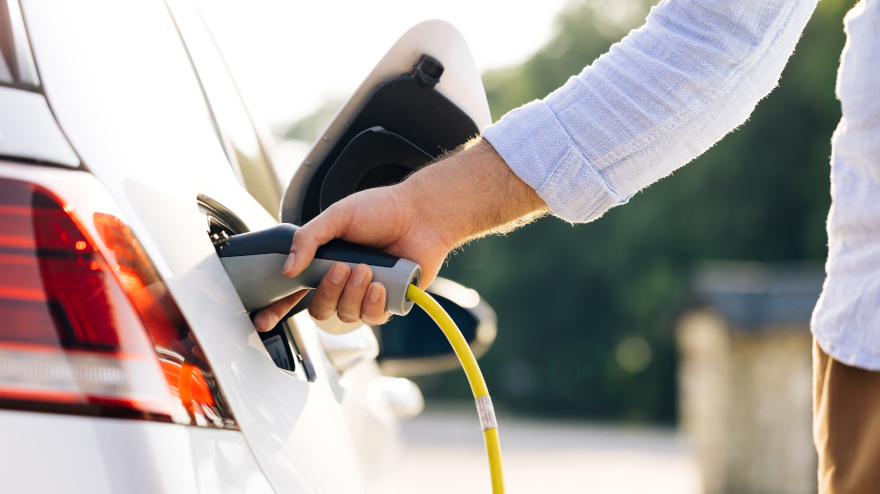Satisfaction with public charging experience falling, JD Power study shows

By subscribing, you agree to receive communications from Auto Remarketing and our partners in accordance with our Privacy Policy. We may share your information with select partners and sponsors who may contact you about their products and services. You may unsubscribe at any time.
The availability of public chargers is still the least satisfying aspect of owning a battery electric vehicle — and the latest research from J.D. Power shows that experience is actually getting worse.
According to the J.D. Power 2024 U.S. Electric Vehicle Experience Ownership Study, satisfaction with public charger availability is 32 points lower now than a year ago among mass market EV owners, making it a major source of frustration.
“The increase in the EV share of the new-vehicle market, reflected by seven new rank-eligible models this year, is a notable step in the transition toward vehicle electrification,” said Brent Gruber, executive director of J.D. Power’s EV practice, in a news release. “Many products are hitting the mark and resonating with shoppers. But at the same time the decline in satisfaction with public charging availability should serve as a warning, because concern about access to public charging is a key reason many buyers currently reject BEVs.
“For EVs to reach their full potential, this issue needs to be resolved. The industry should view this lack of improvement as a critical issue that requires decisive action.”
The study, conducted in collaboration with EV driver app maker and research firm PlugShare, also found traditional factors that are also important to buyers of gas-powered vehicles — such as quality and cost of ownership — are becoming critical to satisfaction among BEV owners.
For example, the BMW i4 ranked No. 1 overall and among premium EVs for customer satisfaction in the study, and the MINI Cooper Electric led the mass market for the second consecutive year. Both models led their segment in the vehicle quality and reliability factor by more than 60 points on a 1,000-point scale.
Subscribe to Auto Remarketing to stay informed and stay ahead.
By subscribing, you agree to receive communications from Auto Remarketing and our partners in accordance with our Privacy Policy. We may share your information with select partners and sponsors who may contact you about their products and services. You may unsubscribe at any time.
Mass market-brand EVs are more reliable than premium EVs, the study found, with 11 of the 14 ranked mass market models outperforming the premium brand market average for total problems.
“Quality and reliability are the most important drivers of a positive EV ownership experience,” Gruber said. “As EVs extend to the broader market, minimizing problems will be key to meeting consumer expectations.”
Among premium brands, the BMW i4 earned a total satisfaction score of 800, followed by the Rivian R1T at 789 and the Rivian R1S (778). The MINI Cooper Electric scored 770 to top mass market entries, with the Ford Mustang Mach-E (764) second and the Hyundai IONIQ 6 (759) third.
Among other findings:
First time is not the charm: First-time BEV owners are less satisfied than those who previously owned a BEV by a margin of 28 points, up from 14 points in 2023, and satisfaction among first-time BEV owners was down 16 points overall. The biggest differences between the two groups are in battery range and public charging availability.
First-timers more likely to switch: First-time BEV owners say they are open to considering non-BEVs in the future. Almost half (48%) say they’d consider a plug-in hybrid and 39% say they are willing to consider hybrid or internal combustion engine vehicles. Only 38% of previous BEV owners say they’d consider a PHEV and only 19% would consider a hybrid or ICE vehicle for their next purchase.
PHEV owners less satisfied: While some experts suggest plug-in hybrids could solve many of the issues affecting BEVs, such as range limitations and lack of public charging availability, the J.D. Power study found owners of PHEVs are much less satisfied with their vehicle than are owners of BEVs. The overall satisfaction score for PHEVs is 629, far below that of mass market BEVs (718) and premium BEVs (750).
“Plug-in hybrids might not be the simple solution to solving early issues with full battery electric vehicles,” Gruber said. “Expected lower running costs is a top purchase reason for EVs but satisfaction with the cost of ownership is much lower for plug-in hybrids.
“Plug-in hybrids retain the costs of maintaining a traditional powertrain but without the benefit of the extended electric driving range found in full battery electric vehicles.”
The U.S. Electric Vehicle Experience (EVX) Ownership Study surveyed 4,650 owners of 2023 and 2024 model-year BEVs and PHEVs from August through December 2023, focusing on the first year of ownership. It evaluates 10 factors: accuracy of stated battery range, availability of public charging stations, battery range, cost of ownership, driving enjoyment, ease of charging at home, interior and exterior styling, safety and technology features, service experience, and vehicle quality and reliability.


